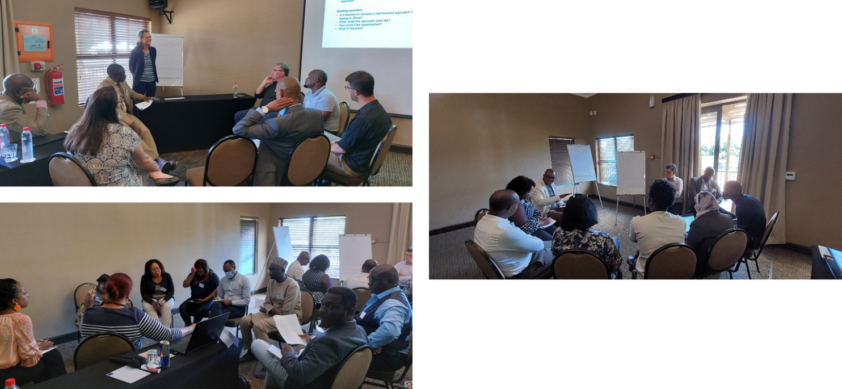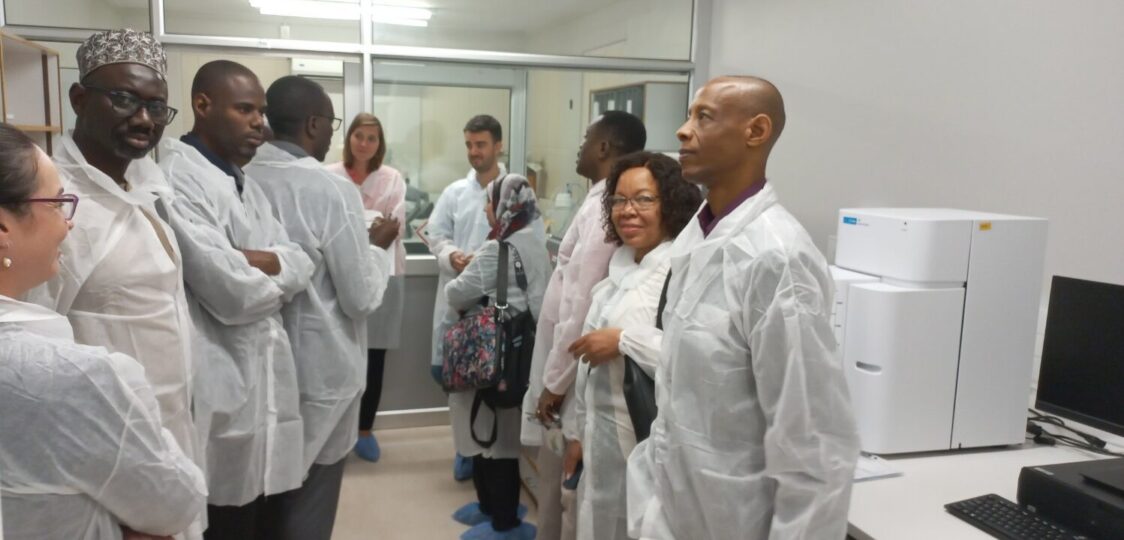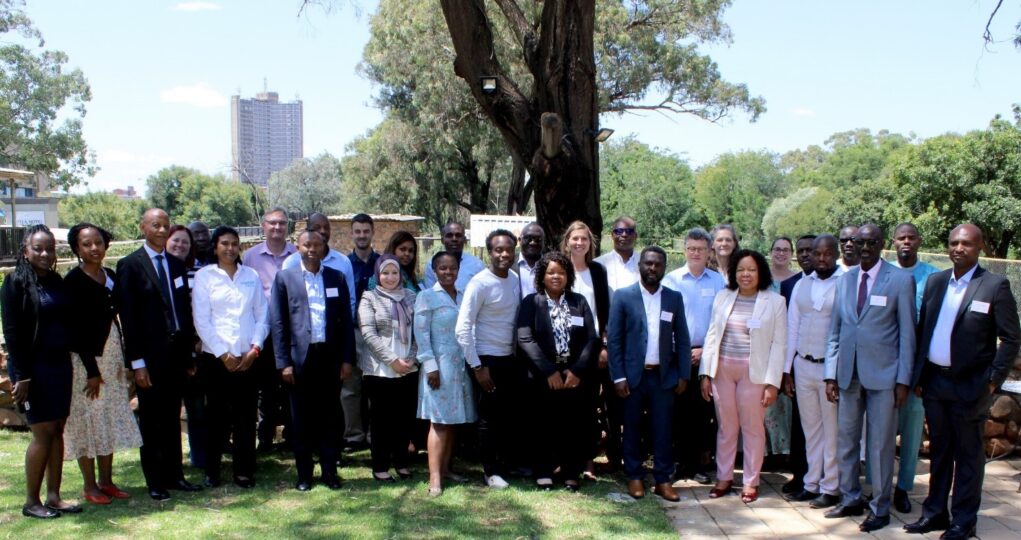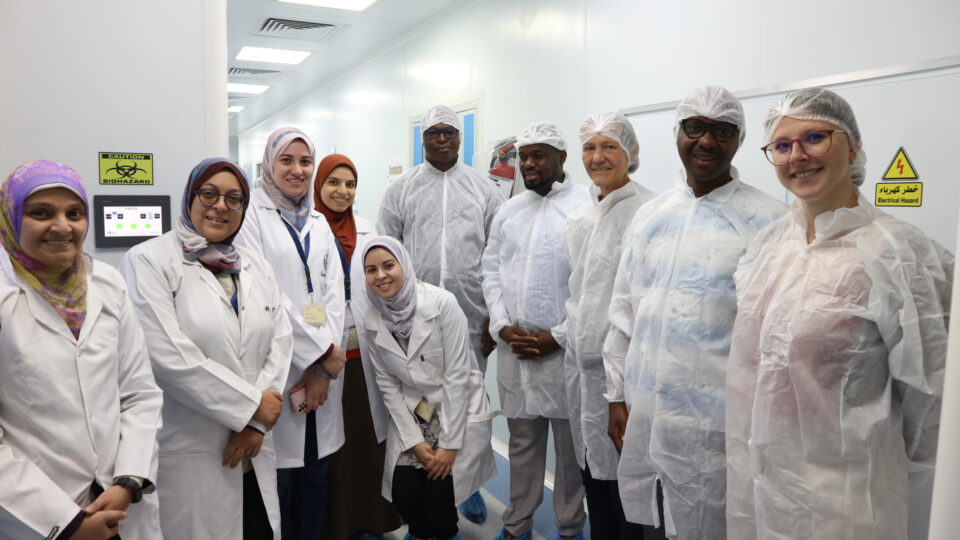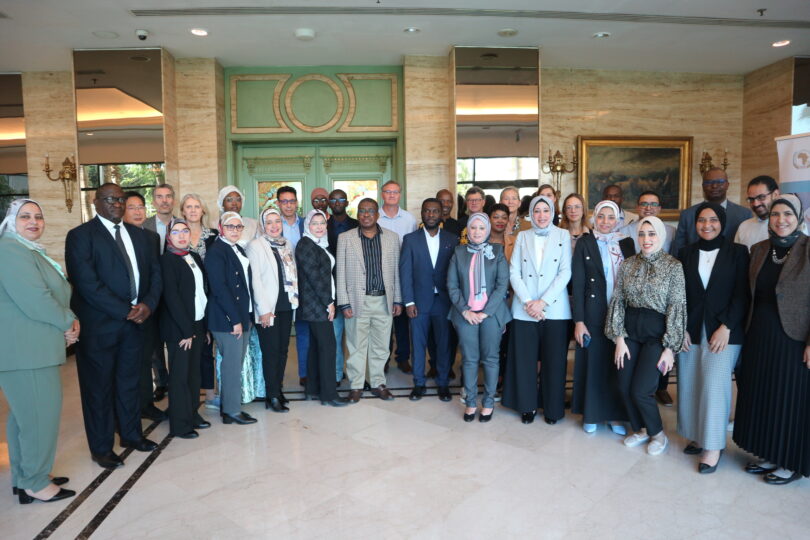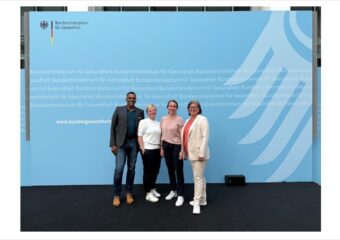Safe Vaccine Supply Across Africa: New African Network Aims to Coordinate Quality Monitoring
The VaccRelease project, run by the Paul-Ehrlich-Institut, is using its expertise to support the African initiative for a new network for official lot release of vaccines. This network aims at developing harmonised requirements for official lot release of vaccines across Africa. Such an approach will provide the basis for recognition of lot release by a qualified Official Control Laboratory by other regulatory authorities in Africa. That way, it is contributing to faster access to safe and effective vaccines in Africa.
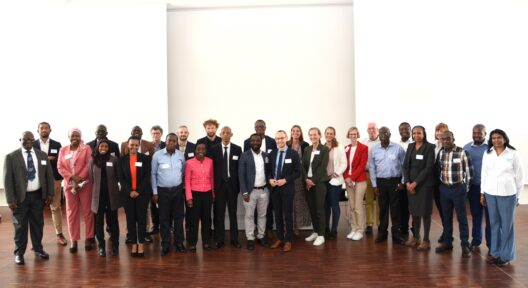
‘We need to collaborate! Let’s go far together.’
Under the leadership of the African Union, the African continent is working hard to expand its own vaccine production. At the same time, this requires strict state control and monitoring of locally produced vaccine lots. As for regulatory authorities and official control laboratories to overcome challenges, an African network is beeing established to agree on common strategies and requirements for official lot release in Africa. ’We have about 1,2 billion inhabitants in Africa and only four countries, that will produce vaccines. We need to collaborate! Let’s go far together,’ emphasised one participant at the first meeting at the Paul-Ehrlich-Institut (PEI) in May 2022.
Specific work plan adopted at the third meeting
During the third meeting in Cairo, held from 27 November to 1 December 2023, participants shared experiences from other international laboratory networks. They also discussed the necessary requirements for official lot testing and the release of vaccines. Highlights included visiting the official Egyptian control laboratory and adopting a concrete work plan and timeline. Both delivered details on how to further collaborate on guidelines and standards for an Africa-wide network of qualified control laboratories for official lot release.
Representatives from medicines authorities and the official control laboratories from Egypt, Ghana, Rwanda, Senegal, Tanzania, Zambia, and South Africa, as well as supporting organisations, participated. These included the African Medicines Quality Forum (AMQF), the WHO National Control Laboratory Network for Biologicals (WHO-NNB), the European Directorate for the Quality of Medicines & HealthCare (EDQM), the National Metrology Institute, Germany (Physikalisch-Technische Bundesanstalt, PTB), the Deutsche Gesellschaft für Internationale Zusammenarbeit (GIZ), and the US Pharmacopeia (USP). The team of VaccRelease – a project launched at PEI in 2023 – organised the professional exchange alongside PTB and AMQF. This aligns with one of the project goals aiming at supporting the development of an Africa-wide recognition system (System of Reliance) for lot release.
Visiting the control laboratories in Egypt and South Africa creates transparency
All previous study trips provided opportunities to visit the established state and WHO-certified control laboratories on site. ’The laboratory tours recently in Cairo and earlier in spring in South Africa were particularly beneficial for all participants. The transparency of observing the processes and equipment on site fosters mutual trust – which is often more impactful than just discussing it,’ says Dr Heidi Meyer. She is the project lead of VaccRelease and accompanied all the study tours with specialist presentations. It is widely acknowledged that trust is essential for a system of mutual recognition to function effectively.
Second meeting: How to establish a harmonised & appropriate quality monitoring
The second study trip took place in Bloemfontein, South Africa, in February 2023. The event provided the proper space for participants to exchange views on harmonised approaches to official lot testing and release. At the meeting, the VaccRelease project highlighted the benefits and requirements of a harmonised, risk-based testing strategy. Manufacturer-independent testing of locally produced vaccine lots was essential, emphasised Dr Volker Öppling, Head of the Department of Microbiological Vaccines at PEI, in his presentation. National control laboratories such as the PEI use selected tests to check the efficacy, quality, and safety of the lots. Which tests are required in detail varies and is jointly determined among the EU. For example, the European Network of Official Medicines Control Laboratories is coordinated by the EDQM. According to Dr Öppling, who represents the PEI in some EDQM committees, such a coordinated risk-based testing strategy would also be beneficial in Africa. It would allow scarce resources to be channelled into critical tests. Besides, it reduces the time to lot release. The coordination between African official control laboratories on testing procedures and processes also has further benefits: It would increase cooperation and ensure greater transparency, which are significant prerequisites for subsequent work sharing.
Reliance in lot testing within the EU as a model for Africa?
The network’s kick-off event took place at the Paul-Ehrlich-Institut in May 2022 (see detailed report at PEI-Website & Candela Blog of PTB). During the study visit to the PEI, experts from the institute imparted specialist knowledge on regulatory requirements and laboratory capacities related to vaccine production in Germany. A tour through PEI’s laboratories illustrated relevant processes and techniques for vaccine lot release. The meeting also outlined models of mutual recognition and work sharing in the European Union in this area, which could serve as a model for Africa. Dr Meyer explained that the PEI performs lot testing for certain vaccines yet with regards to other authorised vaccines relies on the results of the other official medicines control laboratories (OMCL) within the OMCL network of the EU. She also made it clear in her presentation that this works because all EU members have common regulations, common guidelines and standard operating procedures (SOPs) and work very closely together in committees specifically run for this purpose.
Dates of the regulatory network meetings:
- Germany, Paul-Ehrlich-Institut (PEI): 9 May – 12 May 2022
- South Africa, South African National Quality Control Laboratory for Biological Products (SANCLBP):
27 February – 1 March 2023 - Egypt, Egyptian Drug Authority (EDA): 27 November – 1 December 2023
